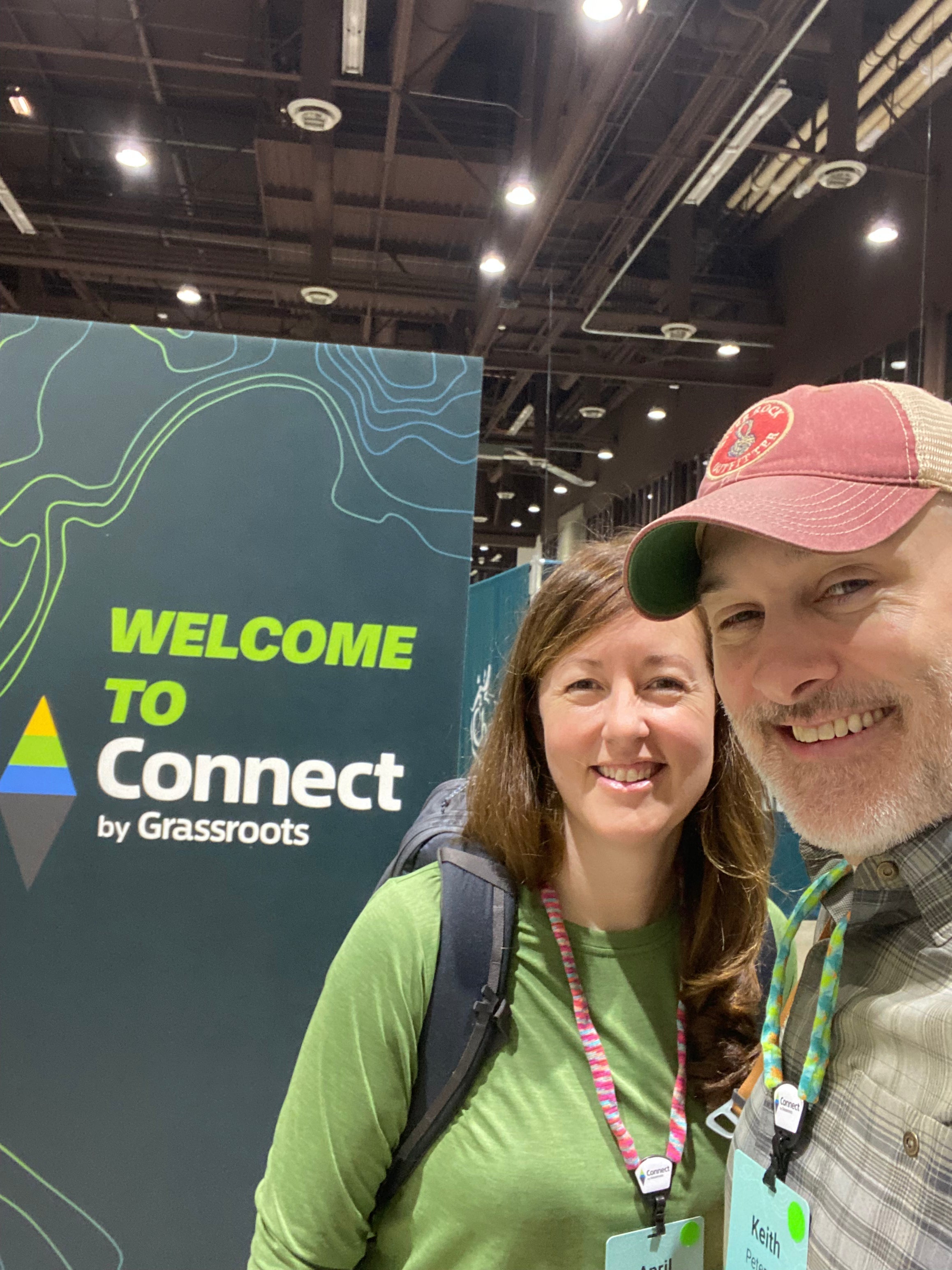Recently, we traveled to Reno, Nevada, for Grassroots CONNECT - our semi-annual
buying show where we preview and purchase the gear and apparel you'll see in our
store for spring/summer 2026. While the job of buying is always exciting (hello, fresh
trends!), what I truly look forward to are the education days and behind-the-scenes field
trips that reconnect me to the why behind what we do.
This time, we had the privilege of touring Patagonia’s distribution center. To say I was
excited would be an understatement and the experience did not disappoint.
The Bigger Picture
The outdoor industry is a chain made up of retailers (like us), sales reps (our go-betweens), and brands (the makers). When this chain works well, it’s a beautiful collaboration. But when communication breaks down - when product design shifts without warning, prices rise unexpectedly, or reps disappear - it’s easy for frustration to creep in. That disconnect can make it feel like we're on an island, doing the hard work of specialty retail alone.
Sometimes, it even makes you question the brands you carry.
Patagonia is one of those brands we’ve loved and occasionally felt distanced from. We know their mission is strong. But when you rarely hear from a rep or see pricing that feels out of reach, it’s hard to communicate that value to our customers.
That All Changed in Reno
From the moment we stepped into Patagonia’s facility, everything clicked. The mission wasn’t just on a wall it was alive in every corner of the space.
We saw open, communal workspaces filled with natural light. A healthy café feeding staff. A vibrant garden with geese and chickens roaming freely. On-site childcare so employees don’t have to miss life’s big moments. Walking trails. River access. A mountain biking path just outside the door. Everywhere we looked, people were using the product - fishing, biking, strolling, and thriving in their Patagonia gear.
This was a place you’d be proud to work. And seeing it firsthand helped me understand why I’m proud to sell it.

Returns, Repairs, and Puppies
One of the most memorable moments was touring their returns department, a place most retailers dread. But the manager there was beaming. For him, this was a chance to connect directly with customers, relay design feedback to the product team, and keep gear out of landfills through repairs and recycling.
Here’s the coolest part: items that can’t be resold go into a staff consignment bin called “PUP-pies” - short for Previously Used Products. Employees can buy these pieces for just a few bucks. The manager showed off his outfit -100% “puppies” - with pride. Items are either repaired and returned to use, resold, or shredded and repurposed for things like dog beds or punching bags. Nothing is wasted. That’s a real circular economy in action.
Not Flashy - Just Human
Keith and I were both struck by how unsophisticated the facility looked, at least compared to the ultra-mechanized behemoths like Amazon. At one point, a box got stuck on a high conveyor belt. Instead of fancy robotics, a guy named Stan used a stick to poke it loose. It was refreshingly human.
Sure, there was technology. But it was used alongside people, not in place of them. And these people seemed happily valued, connected, and clearly proud of their work.

The Heart of the Brand
Then came the repair center. Racks of industrial machines for everything from waders to delicate down jackets. Spools of fabric in every imaginable color. Personalized workstations with photos, decorations, and staff mission statements. These weren’t anonymous factory workers; they were skilled craftspeople who cared.
Seeing it all, up close, confirmed something I’ve always wanted to believe: Patagonia isn’t just selling products. They’re selling purpose. They're investing in their people, their planet, and their process. And yes, that costs more.

Why It Matters
When you buy Patagonia, you’re not just buying a jacket. You’re investing in a community of workers who are repairing, recycling, and reimagining how business can be done. You’re helping pay for childcare, healthy meals, and fresh air. You're saying yes to a brand that believes less harm is not enough and that we can build a better way forward.
I left Patagonia with a renewed sense of confidence. I know that if something goes wrong with your gear, their team will make it right. I know their staff uses and understands the product they ship. And I know the price you pay reflects not just technical performance, but a brand that walks its talk - every single day.
We’re not just selling clothing. We’re selling stories. We’re selling accountability. We’re inviting our customers into a circular economy that keeps gear in use and people connected to nature.
And I saw it all - geese and all - in a little corner of Reno.
